Students new to philosophy–who are perhaps taking their first, and often only philosophy course–often have a hard time adjusting to some of its unique qualities. Philosophy separates itself from other fields by focusing on questions which must be addressed primarily via the use of reasoned arguments. STEM students in particular, who are generally used to answering questions which can be verified either empirically or mathematically, may struggle when they encounter philosophical questions due to the inability of those familiar methods to provide sufficient answers. These five books are accessible resources which introduce their readers to philosophy, the sorts of questions philosophers try to answer, and the tools they use to do so. As of the summer of 2018, I’m an undergrad philosophy major in his senior year. I plan on studying philosophy at the graduate level. These books have all been of great help in developing my modest understanding of the field.
1
Woodhouse's excellent book is well-deserving of the first spot. In a concise and accessible manner, he introduces readers to the basics they will need to be familiar with in order to succeed in a philosophy course. This includes how to recognize philosophical questions, the goals of philosophy, how to think philosophically, and how to read and write philosophical texts. If a prospective student desired to read one book to prepare for their philosophy course(s), Woodhouse's would receive my sincere recommendation.
2
The second text I've chosen highlights the usefulness of philosophy and counters harmful and false notions--such as that philosophy is useless or fails to make progress--that students may possesses about the field. In her thoroughly entertaining novel, Goldstein explores important and compelling philosophical ideas in the modern context by bringing Plato, likely the most important philosophical writer in all of history, into the contemporary world.
3
The Philosophy Skills book incorporates five broad and necessary sets of skills which will greatly aid students in their courses. Firstly, it introduced readers to philosophical questions and what about them is unique to the field. Secondly, it prepares students for class with succinct tips on engaging in classroom discussions and preparing for exams. Third, it outlines the main vocabulary terms used by the major branches of philosophy. Studying metaphysics? Just turn to page 32 and get a refresher on terms such as "functionalism," "idealism," and "compatibilism." Fourth, it outlines the methods of argumentation used by philosophers (honorable mention: if a student wants to focus more on this aspect and learn logic in particular, check out "The Little Logic Book," ISBN: 978-1-937555-10-8). Lastly, the book discusses reading and writing philosophy, including recognizing arguments made in works being read and authoring one's own.
4
It is often suggested that best way to understand philosophy is study its history. Gaarder's novel provides a rich and compelling survey of that history. The story concerns a fourteen-year-old girl named Sophie, whose journey begins when she receives letters asking her "Who are you?" and "Where does the world come from?" Her wonder concerning these questions and attempts to puzzle out answers catalyze a magnificent journey through the Western philosophical tradition that will greatly aid students in engaging with these questions (among others) and formulating their own answers.
5
Adler outlines ten philosophical mistakes he believes tend to be made in the modern world. He supports his views with arguments and further, attempts to show precisely how these mistaken ideas negatively impact those who accept them. Readers may agree or disagree with Adler's arguments, but the clarity with which he makes his cases will tend to provoke critical thinking and response. This book is suggested because of its ability to encourage its readers to respond logically to the issues that it raises; and that, after all, is what philosophy is all about.
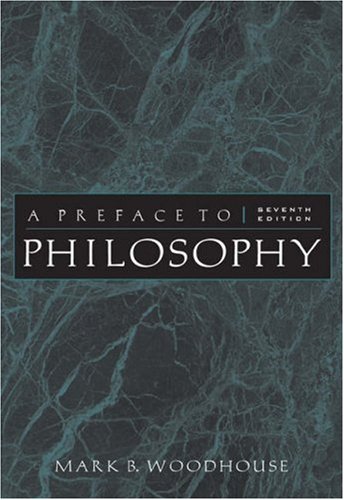
1
Woodhouse's excellent book is well-deserving of the first spot. In a concise and accessible manner, he introduces readers to the basics they will need to be familiar with in order to succeed in a philosophy course. This includes how to recognize philosophical questions, the goals of philosophy, how to think philosophically, and how to read and write philosophical texts. If a prospective student desired to read one book to prepare for their philosophy course(s), Woodhouse's would receive my sincere recommendation.
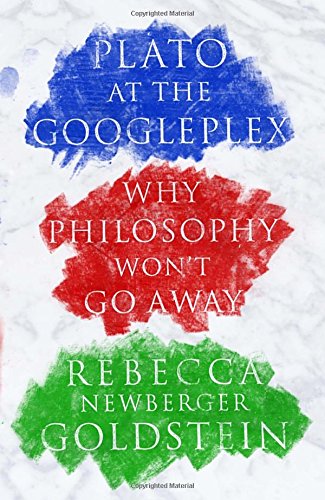
2
The second text I've chosen highlights the usefulness of philosophy and counters harmful and false notions--such as that philosophy is useless or fails to make progress--that students may possesses about the field. In her thoroughly entertaining novel, Goldstein explores important and compelling philosophical ideas in the modern context by bringing Plato, likely the most important philosophical writer in all of history, into the contemporary world.
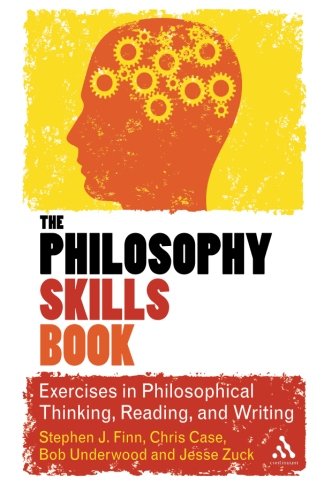
3
The Philosophy Skills book incorporates five broad and necessary sets of skills which will greatly aid students in their courses. Firstly, it introduced readers to philosophical questions and what about them is unique to the field. Secondly, it prepares students for class with succinct tips on engaging in classroom discussions and preparing for exams. Third, it outlines the main vocabulary terms used by the major branches of philosophy. Studying metaphysics? Just turn to page 32 and get a refresher on terms such as "functionalism," "idealism," and "compatibilism." Fourth, it outlines the methods of argumentation used by philosophers (honorable mention: if a student wants to focus more on this aspect and learn logic in particular, check out "The Little Logic Book," ISBN: 978-1-937555-10-8). Lastly, the book discusses reading and writing philosophy, including recognizing arguments made in works being read and authoring one's own.
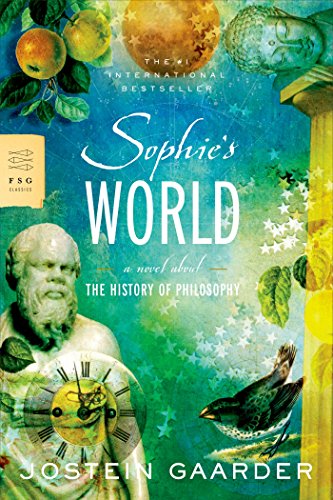
4
It is often suggested that best way to understand philosophy is study its history. Gaarder's novel provides a rich and compelling survey of that history. The story concerns a fourteen-year-old girl named Sophie, whose journey begins when she receives letters asking her "Who are you?" and "Where does the world come from?" Her wonder concerning these questions and attempts to puzzle out answers catalyze a magnificent journey through the Western philosophical tradition that will greatly aid students in engaging with these questions (among others) and formulating their own answers.
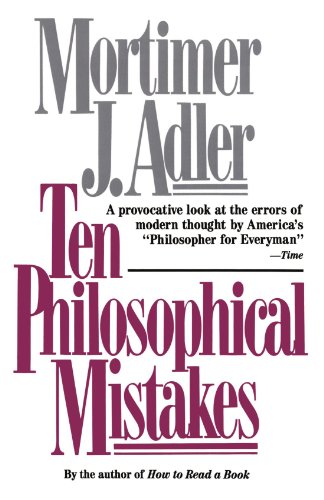
5
Adler outlines ten philosophical mistakes he believes tend to be made in the modern world. He supports his views with arguments and further, attempts to show precisely how these mistaken ideas negatively impact those who accept them. Readers may agree or disagree with Adler's arguments, but the clarity with which he makes his cases will tend to provoke critical thinking and response. This book is suggested because of its ability to encourage its readers to respond logically to the issues that it raises; and that, after all, is what philosophy is all about.
© Five Books 2024